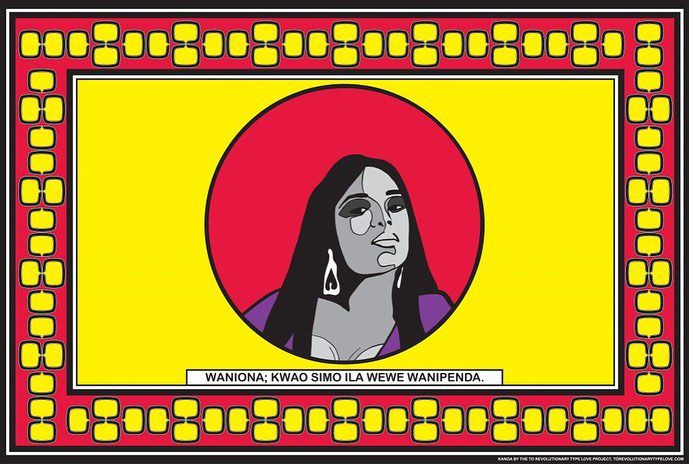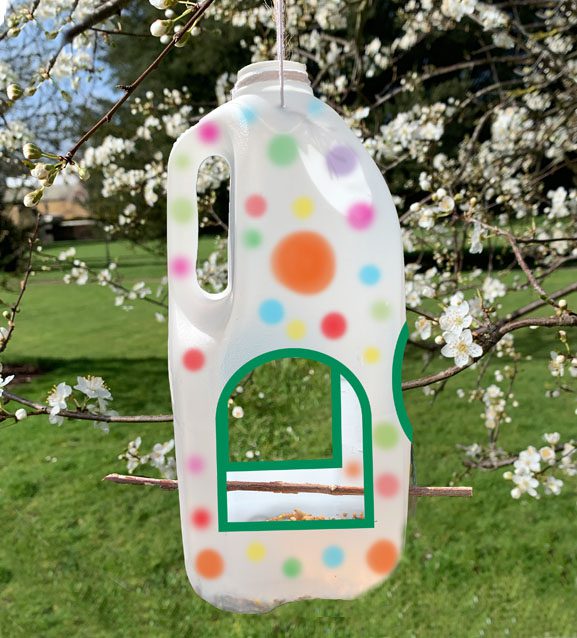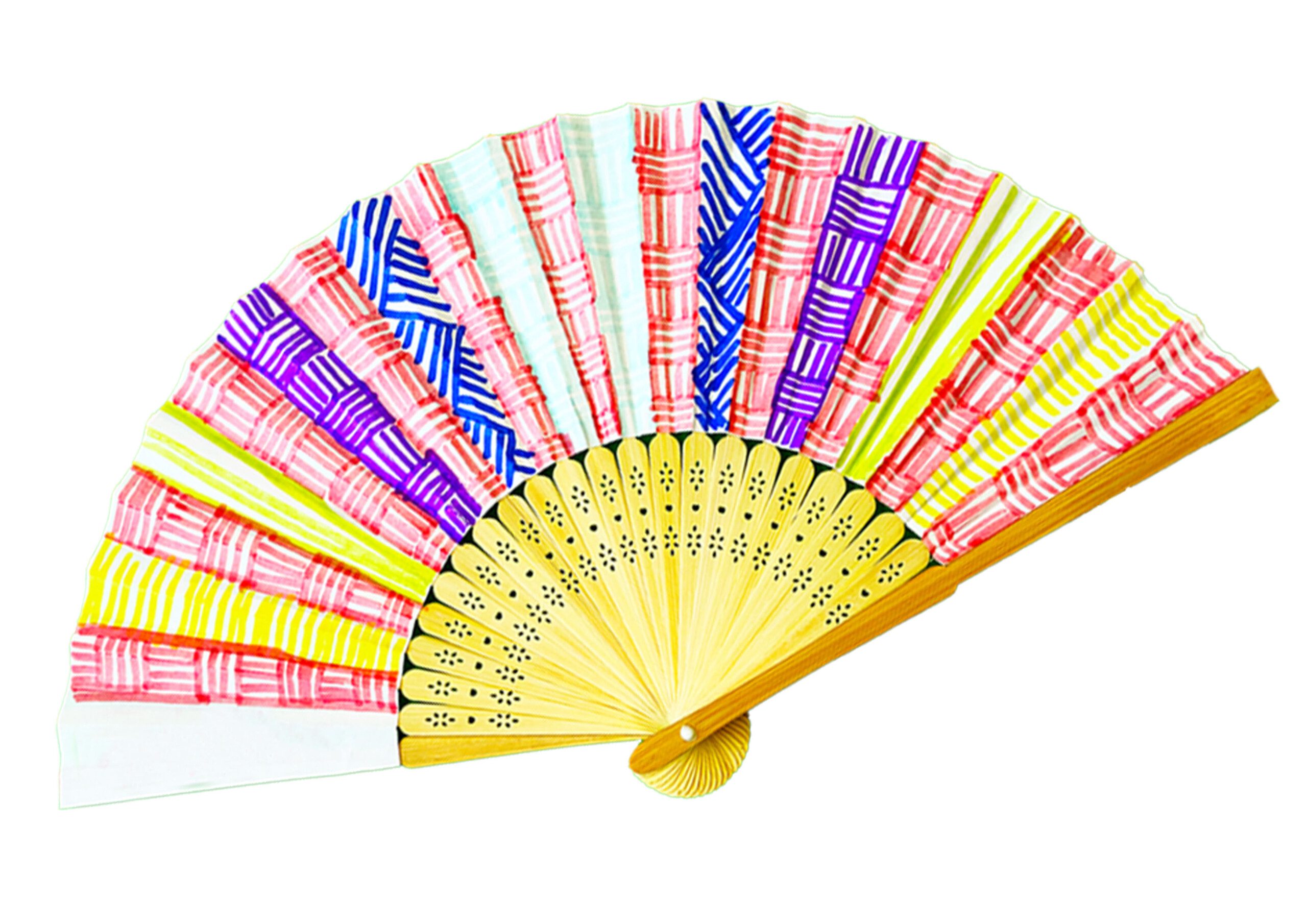Mia Pollak of Margate Pride talks about textiles and social activism
In this audio, Mia Pollak from Margate Pride (https://www.margatepride.org.uk) chats with Emma-Jayne Hamlington (Learning and Outreach Officer, Powell-Cotton Museum). They examine the Museum’s Kanga collection – textiles that tell a story – and discuss the importance of wearing your identity, especially when you might be unable to speak your mind safely. The audio is 21 minutes long. A transcript is available at the bottom of this page.
What is a Kanga?
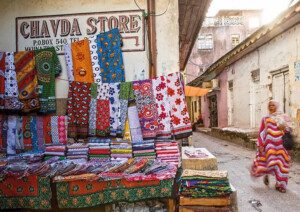
Kangas are rectangular printed cotton fabrics that have been worn by women in East Africa since the 19th century. They have a decorative border; a central panel usually with recurring motifs; and an inscription. The rectangular-shaped printed cloth measures about 150 centimetres in length and 110 centimetres in width. They are sold uncut and in pairs. The images and Swahili texts inscribed on the Kanga are used to pass on various messages, including those which are social, political, religious, or health or development related. Some Kangas are printed and used as campaign tools, for passing religious messages and Christmas wishes, for raising awareness on various issues such as HIV/AIDS, or simply for showing images of influential figures such as politicians and celebrities.
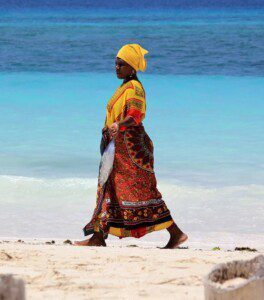
There are several ways in which people make use of the Kanga. Women wrap them around their bodies in different ways, covering and carrying babies, supporting loads carried on the head or back, and as wall hangings. They are also used to make outfits, headpieces, bags, curtains, tablecloths, curtains, seat covers, pillowcases, duvet covers, and many more everyday items.
Who was Kawira Mwirichia?
In the audio, you will hear a conversation about the queer artist, activist and curator Kawira Mwirichia. Kawira was from Kenya and lived in a town called Athi River. She was internationally known for her kangas and traditional fine arts such as painting, drawing, and sculpture.
In 2017 Kawira started a project called To Revolutionary Type Love. For her ambitious project, Kawira aimed to create a new kanga for every country in the world, all 196. Each kanga’s design would combine that country’s flag, and depict a pivotal moment in that country’s fight for LGBTQIA rights. Some designs are more literal than others, featuring activists like the South African campaigner Simon Nkoli. Elsewhere there is a hint of a symbol that becomes the foundation for the design – for Australia, it’s the balloons that featured prominently in the first Pride celebrations in Sydney. In addition, love quotes collected from the Kenyan queer community are appropriately matched to each country’s kanga. The exhibition opened on 17th May 2017 and showcased the first designs.
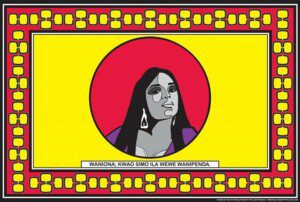
The Kanga shown here is for Angola and is on loan to the Museum. The quote in Kiswahili says ‘ waniona; kwao simo ila wewe wanipenda’ and it translates as ‘You see me, they think I am invisible, you love me anyway‘. The central panel features a portrait of Titica, an LGBTQIA activist and trans artist in Angola.
As of 2017, 37 of Africa’s 57 countries criminalize homosexual acts.
What next?
- If you are a school or a group you may like to borrow our loans box Trading Textiles
This loan box contains Kente textiles, Adinkra textiles and Kanga textiles, and traditional Adinkra printing stamps. Discover how and why these beautiful textiles were made and the significance of the different colours, patterns, and symbols. The loans box is a perfect starting point for inspiring you to design and print your own textile. Object notes and a Teacher’s Pack with suggested learning activities are included.
